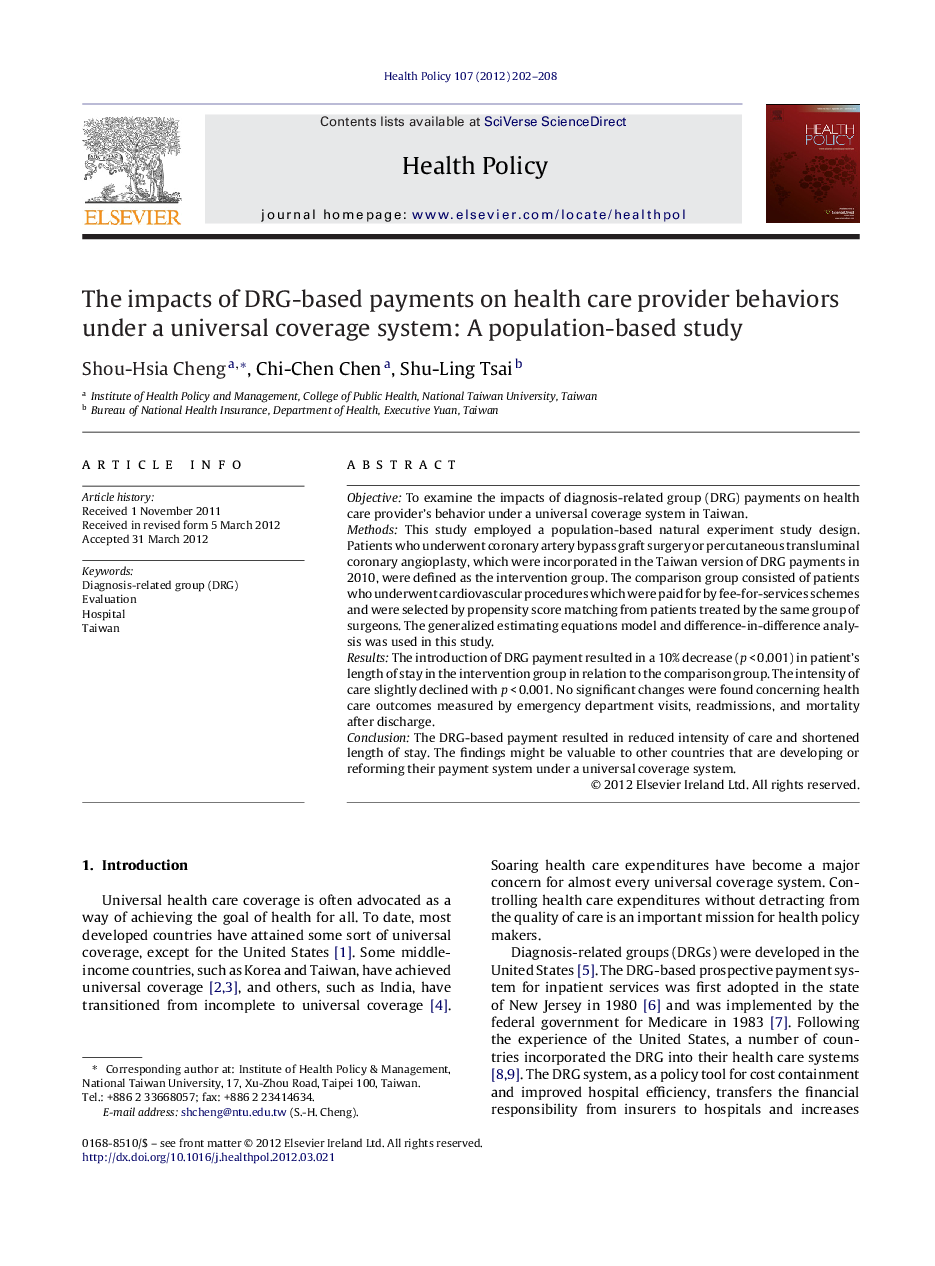| کد مقاله | کد نشریه | سال انتشار | مقاله انگلیسی | نسخه تمام متن |
|---|---|---|---|---|
| 6240121 | 1609025 | 2012 | 7 صفحه PDF | دانلود رایگان |

ObjectiveTo examine the impacts of diagnosis-related group (DRG) payments on health care provider's behavior under a universal coverage system in Taiwan.MethodsThis study employed a population-based natural experiment study design. Patients who underwent coronary artery bypass graft surgery or percutaneous transluminal coronary angioplasty, which were incorporated in the Taiwan version of DRG payments in 2010, were defined as the intervention group. The comparison group consisted of patients who underwent cardiovascular procedures which were paid for by fee-for-services schemes and were selected by propensity score matching from patients treated by the same group of surgeons. The generalized estimating equations model and difference-in-difference analysis was used in this study.ResultsThe introduction of DRG payment resulted in a 10% decrease (p < 0.001) in patient's length of stay in the intervention group in relation to the comparison group. The intensity of care slightly declined with p < 0.001. No significant changes were found concerning health care outcomes measured by emergency department visits, readmissions, and mortality after discharge.ConclusionThe DRG-based payment resulted in reduced intensity of care and shortened length of stay. The findings might be valuable to other countries that are developing or reforming their payment system under a universal coverage system.
Journal: Health Policy - Volume 107, Issues 2â3, October 2012, Pages 202-208